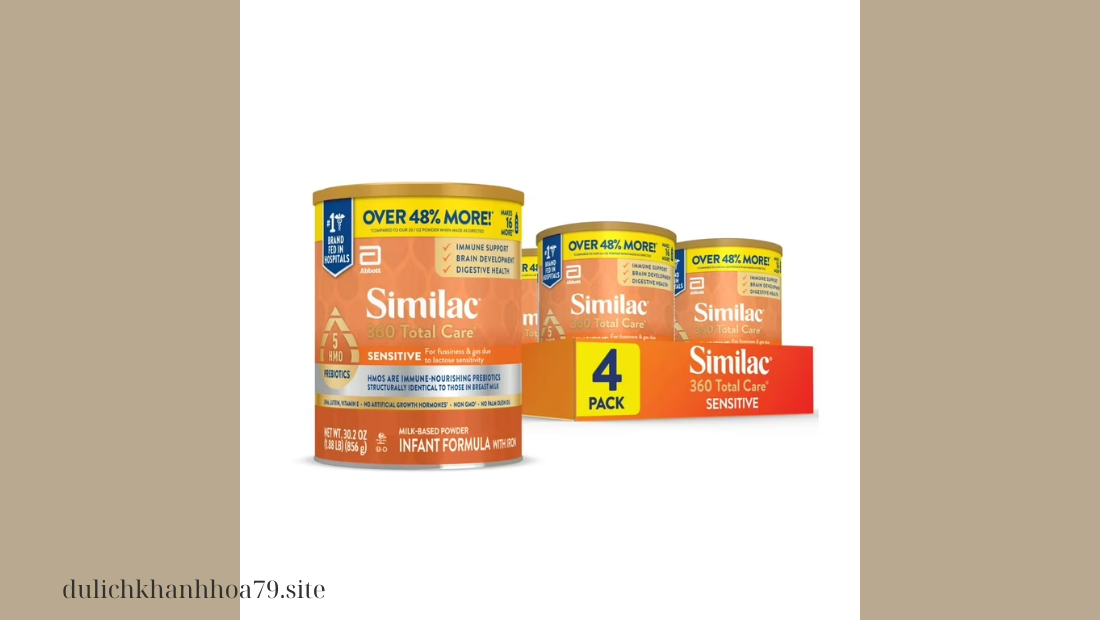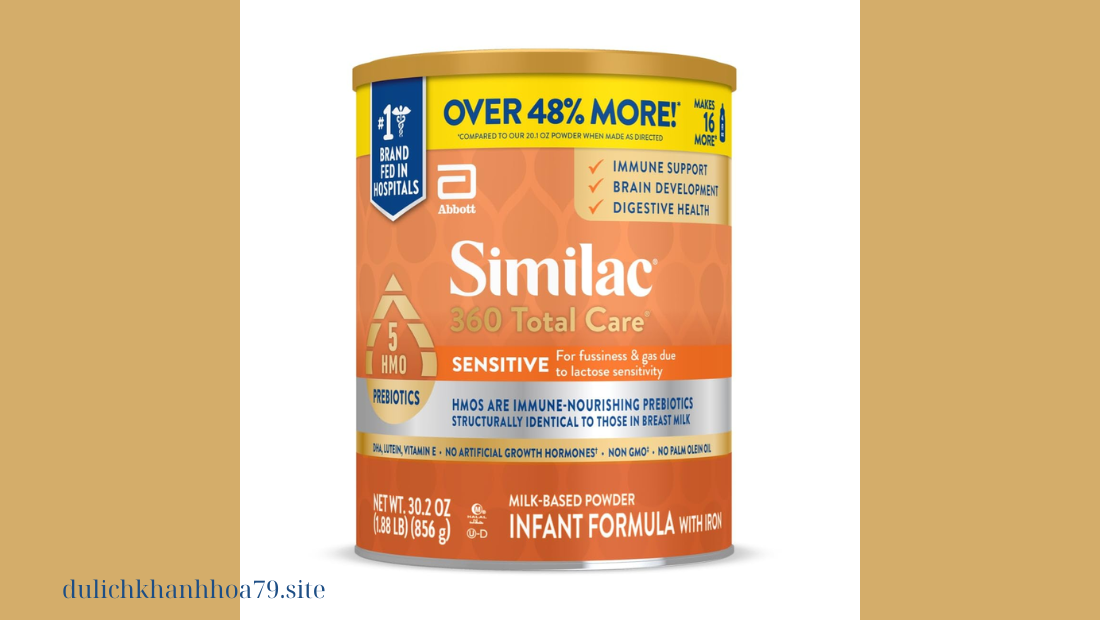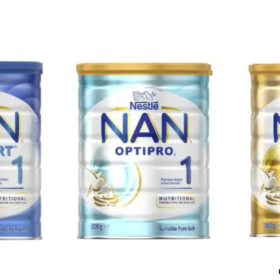Choosing the right baby formula can be one of the most daunting tasks for new parents. With countless options available, each promising to deliver optimal nutrition, it’s essential to make an informed choice. One popular option on the market is Similac Sensitive Formula. Designed specifically for babies with lactose sensitivity, this formula has garnered attention for its unique composition and benefits. In this article, we’ll explore the key features, benefits, drawbacks, and user reviews of Similac Sensitive to help you determine if it’s the right choice for your little one.
Understanding Similac Sensitive Formula
Similac Sensitive is a milk-based infant formula specially designed for babies who may experience fussiness or gas due to lactose sensitivity. It aims to provide essential nutrients while being easier on the stomach. The formula contains a blend of carbohydrates that are easier to digest, making it a potential choice for babies who struggle with traditional formulas.
Key Features of Similac Sensitive Formula
- Lactose-Free Option: Similac Sensitive is formulated with reduced lactose levels, making it suitable for babies with lactose intolerance or sensitivity. This can help minimize digestive discomfort and fussiness.
- Easy-to-Digest Proteins: The formula features partially hydrolyzed proteins, which are smaller and easier for babies to digest. This can be beneficial for infants who may experience difficulty with standard protein formulas.
- Nutritional Composition: Similac Sensitive is fortified with essential nutrients, including DHA (Docosahexaenoic Acid) and ARA (Arachidonic Acid), which are crucial for brain and eye development. The formula also includes vitamins and minerals to support overall growth and development.
- Prebiotic Blend: The addition of prebiotics helps support your baby’s digestive health by promoting a healthy gut flora, which is vital for nutrient absorption and immune function.
- Non-GMO Ingredients: Similac Sensitive is made with non-GMO ingredients, which is an important consideration for many parents who are looking for formulas without genetically modified organisms.
Benefits of Similac Sensitive Formula
- Reduced Fussiness: Many parents report that switching to Similac Sensitive has helped reduce their baby’s fussiness and gas, leading to a happier feeding experience. The formulation aims to alleviate discomfort associated with lactose sensitivity.
- Nutritional Support: With a well-rounded nutritional profile, Similac Sensitive provides the essential nutrients that growing infants need. The combination of DHA, ARA, and prebiotics contributes to healthy development.
- Easy Transition: For parents transitioning from breastfeeding or another formula, Similac Sensitive is designed to be easy to digest, making it a potentially smooth switch for babies.
- Convenience: Available in both powder and ready-to-feed liquid forms, Similac Sensitive offers convenience for busy parents. The ready-to-feed option is especially handy for on-the-go situations.
- Positive Reviews: Many users have shared positive experiences with Similac Sensitive, noting improvements in their babies’ digestion and overall satisfaction.
Drawbacks of Similac Sensitive Formula
- Price Point: Similac Sensitive is generally more expensive than standard formulas. For families on a budget, this could be a significant consideration.
- Taste Preference: Some parents report that their babies are picky about taste, and there may be a period of adjustment when introducing Similac Sensitive. It’s essential to monitor your baby’s reaction and consult a pediatrician if you have concerns.
- Availability Issues: Depending on your location, Similac Sensitive may not always be readily available in stores. Online ordering can be a solution, but it’s important to plan ahead to ensure you always have a sufficient supply.
- Potential Allergens: While Similac Sensitive is designed for lactose sensitivity, it still contains cow’s milk protein, which may not be suitable for babies with dairy allergies. Parents should always consult with a pediatrician to determine the best formula for their child.
User Reviews and Experiences
To provide a comprehensive view, here are some user reviews and experiences from parents who have used Similac Sensitive Formula:
- Emily, a new mom: “After struggling with gas and fussiness, we switched to Similac Sensitive. It made a noticeable difference in our baby’s comfort during and after feedings. She seems much happier now!”
- James, a father of twins: “We initially tried a standard formula, but our twins were so gassy. Since switching to Similac Sensitive, they’ve been much calmer, and their digestion has improved. Plus, they seem to love the taste!”
- Lila, a breastfeeding mother: “I wanted to supplement my breast milk, and I chose Similac Sensitive. It’s been a great choice for my little one. She doesn’t have any trouble transitioning between breast milk and this formula.”
- David, a budget-conscious parent: “I appreciate the quality of Similac Sensitive, but it’s a bit pricey for us. I’ve had to cut back on other expenses to keep up with the formula costs. However, my baby’s comfort is worth it!”
How to Choose the Right Formula for Your Baby
When selecting the right formula for your baby, consider the following factors:
- Nutritional Needs: Assess your baby’s specific nutritional needs, including any sensitivities or allergies. Consult with your pediatrician for personalized recommendations.
- Digestive Health: If your baby has experienced gas, fussiness, or digestive issues, a formula like Similac Sensitive with reduced lactose may be beneficial.
- Budget: Factor in your budget and how much you are willing to spend on formula. There are various options at different price points, so it’s essential to find one that fits your financial situation.
- Convenience: Consider the form of the formula (powder vs. ready-to-feed) that best suits your lifestyle. Ready-to-feed options can be convenient for travel, while powder formulas may be more economical for regular use.
- Trial and Observation: It may take some trial and error to find the formula that works best for your baby. Observe your baby’s reaction and consult your pediatrician if you have concerns about their digestion or overall health.
Conclusion: Is Similac Sensitive Formula Right for Your Baby?
In summary, Similac Sensitive Formula offers a thoughtful solution for parents seeking a lactose-sensitive option for their little ones. With its easy-to-digest proteins, balanced nutrition, and positive user feedback, it has the potential to provide a comfortable feeding experience for babies who may struggle with traditional formulas.
While the price point and potential taste preferences may be drawbacks for some families, the benefits of reduced fussiness and improved digestion are worth considering. As with any formula choice, it’s essential to consult with your pediatrician to determine the best option based on your baby’s individual needs.
Ultimately, Similac Sensitive could be the right choice for your baby, especially if they show signs of lactose sensitivity. By making an informed decision and closely monitoring your baby’s reactions, you can find the perfect formula that supports their growth and development.



